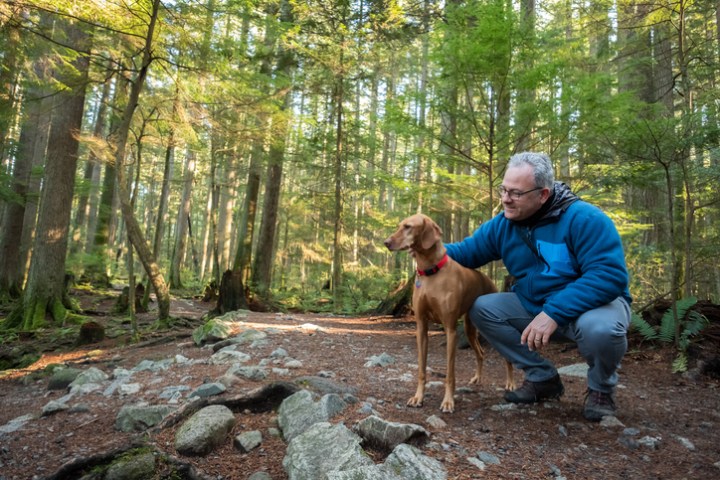How to Niksen Your Life: Embrace the Dutch Art of Doing Nothing

With such a large variety of trends, philosophies and quick-fix solutions, do we need yet another trend in our lives? I’m often asked this in interviews and I am not surprised. After all, doing nothing hardly seems like a revolutionary idea. But as you’ll discover, there is so much more to niksen than doing nothing. Much, much more.
In this day and age, with everyone leading incredibly busy lives, refusing to run around like a headless chicken is nothing short of extraordinary. Niksen will help you let go of some of that busyness instead of adding to it.
Yet busyness is only a part of the problem. There’s also the constant pressure to perform that we feel in every area of life. We expect ourselves to give everything at work (never wasting time and always becoming more productive), and then go home to an immaculate and well-organised house (please let me know how to do that!), raise well-behaved and creative children (read this list describing all the ways you’re ruining your kids), and have time to drive them to all sorts of stimulating sports and other activities. And let’s not forget that we’re expected to be supportive spouses or partners.
And what about your health and eating habits? Have you tried spirulina or kale? Have you been to the gym lately? Are you ready for your next marathon? And if these questions make you angry, then what about that mindfulness workshop to turn you into a calmer, kinder person?
We expect ourselves, as the Germans say, to be an eierlegende Wollmilchsau. Or a pig that gives milk, eggs and wool, on top of meat. We expect ourselves to be everything, for everyone, at all times.
Being a modern-day human is exhausting. It is from this frame of mind, feeling we are not good enough as we are, and our quest for perfection that we then read about hygge or KonMari or whatever new trend is the flavour of the day. But what extra effort will this require from us? What will we have to do? What will we have to buy?
Niksen appeals to a desire for a simpler, more minimalistic lifestyle. Decluttering our lives has gained in popularity over the last years and for this reason I don’t believe the interest in niksen appeared out of the blue. The desire to do nothing may be as old as time. It has just been dormant. It’s as though it didn’t have a name and was therefore difficult to talk about.
. . .
A first step towards understanding and appreciating the power of niksen is acknowledging our judgements about doing nothing and how we speak about it. Think about it; when do you use the word ‘nothing’? We tend to talk about doing nothing as though we’re ashamed of it, especially in relation to work. ‘Oh, it’s nothing,’ we say when we think we should be working but are browsing Facebook instead. The word ‘nothing’ often translates in some way to ‘unimportant’. Or worse: undesirable. Think of the child who tells us they’ve done ‘nothing’ when there are obviously chocolate and crumbs all over your carpet, and the high-quality pralines you bought yourself are nowhere to be found.
‘It seems quite a negative term, doesn’t it? People say: I’m so lazy, or people accuse other people of being lazy,’ wonders Sandi Mann, a British psychologist, bringing laziness back into the equation. But it’s not all bad, ‘because we sometimes say, “I’ve had such a lazy morning” and that’s seen as a good thing.’ It’s only worrying, Mann thinks, ‘when we do too much of it’.
When my New York Times article on niksen went viral, I had people near and far asking me for advice on how to find more niksen time. ‘I don’t know,’ I would say, ‘sit down for five minutes, and just do it!’ That wasn’t very helpful, I’m afraid. Doing nothing doesn’t come naturally to everyone.
‘Just do it’ bypasses important questions. Why can’t we do nothing? Why is it so hard? Since then, I’ve reconsidered that particular piece of advice. Now, if asked, I’d say, ‘Just do it, whenever you can. And don’t worry if it’s not possible for you or very difficult, or only possible for a short amount of time. Give it a try and see if it works for you. And remember, even a few minutes of niksen is enough.’
One of the reasons niksen is so hard is because we feel shame when we engage in activities that are apparently less productive than, for instance, work. We assign lesser value to activities that might be considered a waste of time, such as gazing out of the window, sitting still, or looking around the room. It’s very hard for us to see – immediate – value in doing nothing, mostly in light of all the things that don’t get done while we do niks. Saying ‘just do it’ is a little too easy when what is needed is a 180-degree change in perspective.
Niksen is not a random, unimportant activity. It has important, immediate and long-lasting benefits. The Dutch say, ‘doing nothing is good for nothing’, but I beg to differ. ‘Doing nothing is definitely not for nothing.’
'Niksen is an increasingly popular Dutch relaxation technique where you relinquish control and just ... stop. At a time when meditative practices can feel like yet another thing to do, niksen is liberatingly simple' the Guardian
The Dutch concept of niksen comes at no cost and zero effort. It's literally doing nothing, but consciously so.
In this concise and witty book, Olga Mecking will provide tips on how to niksen in the most important areas of your life: work, home and leisure. Talking to experts from around the world, she reveals how doing nothing can make you happier, more productive and creative. In addition, we are given a fun glimpse of Dutch culture to show us why the Dutch are one of the happiest people in the world and why they are so good at doing nothing every once in a while.
We all have a concept of what doing nothing means to us, but do our ideas actually correspond with the truth behind niksen? A common hurdle towards embracing idleness, for example, is that we feel the need to be productive, contributing members of society. In fact, even the Dutch tend to say, niksen is niks or, in English, doing nothing is good for nothing. That constant need to work can lead to more stress, decreased mental wellbeing and paradoxically, being less productive.
Stress and burnout are on the rise. The antidote: Niksen.








